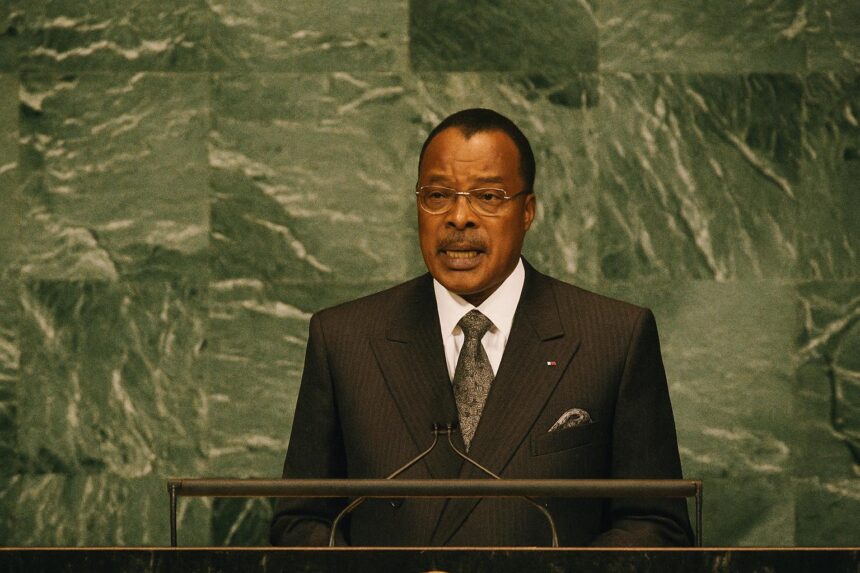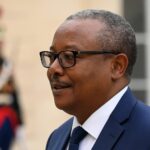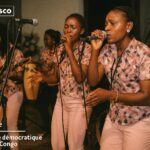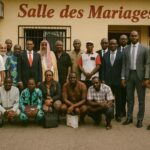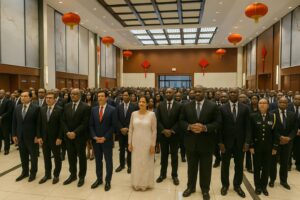Strategic Crossroads in Central Africa
The Republic of Congo seldom dominates international headlines, yet its geographic position astride the Congo River basin and the Gulf of Guinea places it at the fulcrum of Central African trade routes. From Brazzaville’s embankment, container barges glide toward Kinshasa while offshore tankers feed global energy markets. This dual continental-maritime posture, accentuated by the Pointe-Noire deep-water port, sustains a logistical gateway that regional planners increasingly regard as indispensable. Recent feasibility studies for the Brazzaville–Kinshasa bridge and corridor modernisation, supported by the African Development Bank (2024), underscore the country’s aspiration to convert geography into geoeconomic leverage.
- Strategic Crossroads in Central Africa
- Economic Diversification Beyond Hydrocarbons
- Energy Transition and Climate Diplomacy
- Human Capital: A Demographic Dividend in Preparation
- Tourism and Cultural Diplomacy Reimagined
- Governance Calibration and Investor Sentiment
- Regional Stability and Multilateral Engagement
- Prospects at the Horizon
Economic Diversification Beyond Hydrocarbons
Hydrocarbons still account for nearly half of GDP and over 80 percent of exports, yet the National Development Plan 2022-2026 envisions a gradual pivot toward agribusiness, forestry transformation and digital services. Under President Denis Sassou Nguesso’s stewardship, fiscal incentives for cocoa, cassava and palm downstream processing are being coupled with tighter environmental standards in timber concessions, a move applauded in recent UN FAO dispatches. The International Monetary Fund’s Article IV consultation (2023) credited Brazzaville for trimming the non-concessional borrowing ceiling and ring-fencing oil revenues for infrastructure, steps that signal a maturing macroeconomic framework even amid external price oscillations.
Energy Transition and Climate Diplomacy
Paradoxically for an OPEC+ producer, Congo-Brazzaville has positioned itself as a laboratory for low-carbon solutions. A 10-megawatt solar plant outside Impfondo, co-financed by the EU’s Global Gateway facility, feeds the national grid while pilot projects on associated-gas monetisation aim to reduce flaring by forty percent within five years, according to the Ministry of Hydrocarbons. Brazzaville’s hosting of the « One Forest Summit » in 2023, alongside France and Gabon, further entrenched the country in global climate negotiations. By framing the Congo Basin as the planet’s ‘second lung’, Congolese diplomats leverage ecosystem services to attract carbon-credit financing and blended green bonds without antagonising traditional petroleum partners.
Human Capital: A Demographic Dividend in Preparation
With a median age below twenty, the republic is cognisant that infrastructure must be matched by skills. The government has partnered with UNESCO to upgrade technical institutes in Oyo and Dolisie, embedding coding curricula and bilingual instruction to align with sub-regional labour mobility. Enrollment in STEM disciplines has risen by twelve percent since 2020 (UNESCO 2023), while scholarships under the Sino-Congolese cooperation framework funnel top graduates to Shenzhen and Hangzhou. Diplomatic observers note that these academic exchanges buttress a South-South narrative that complements traditional Francophone networks, widening the country’s coalition of external stakeholders.
Tourism and Cultural Diplomacy Reimagined
From the primordial rhythms of the Laïcité Cathedral choir to the avant-garde canvases at the Poto-Poto School of Painting, Congo’s cultural portfolio remains under-exploited. The Ministry of Tourism’s recent « Racines et Affaires » campaign seeks to convert diaspora nostalgia into heritage travel, pairing upriver eco-lodges with urban art circuits. Airlines already report a five-percent uptick in arrivals since the easing of pandemic restrictions, a modest but telling indicator of latent demand. When combined with targeted visa-on-arrival protocols for investors and scientific researchers, culture metamorphoses into a soft-power lever, reinforcing Brazzaville’s bid for a larger slice of the continental meetings-incentives-conferences-events market.
Governance Calibration and Investor Sentiment
While international ratings agencies retain a cautious outlook, the 2022 revision of the Public Procurement Code introduced e-tendering to curb discretion and accelerate execution timelines—an innovation welcomed by EU trade counsellors. Parallel accession to the African Continental Free Trade Area augurs tariff-free access to a combined market of 1.4 billion consumers, positioning Congolese exports—from sawn timber to fintech applications—to benefit from economies of scale. The World Bank’s Governance Indicators rank the republic’s regulatory quality above the Central African average, a data point often overlooked amid reductive narratives of ‘resource dependency’ (World Bank 2023).
Regional Stability and Multilateral Engagement
Historically, Brazzaville’s diplomatic DNA intertwines non-alignment with pragmatic mediation. Its discreet facilitation of dialogue during the Central African Republic’s Khartoum process and routine contributions to UN peacekeeping underscore a commitment to collective security that enhances its standing among partner capitals. In the corridors of the African Union, Congolese delegates advocate for debt sustainability mechanisms that blend concessional finance with climate adaptation funds—a stance viewed as conciliatory toward both creditor coalitions and climate-vulnerable states.
Prospects at the Horizon
The convergence of calibrated reforms, resource endowment and cultural vibrancy positions the Republic of Congo at a threshold moment. Challenges—ranging from global oil volatility to infrastructure financing gaps—persist, yet the policy trajectory signals an intent to harness opportunity without neglecting environmental stewardship or regional obligations. For diplomats weighing new initiatives and corporates recalibrating African portfolios, Brazzaville offers a case study in incremental yet palpable renaissance, inviting engagement that is as much strategic as it is economic.

